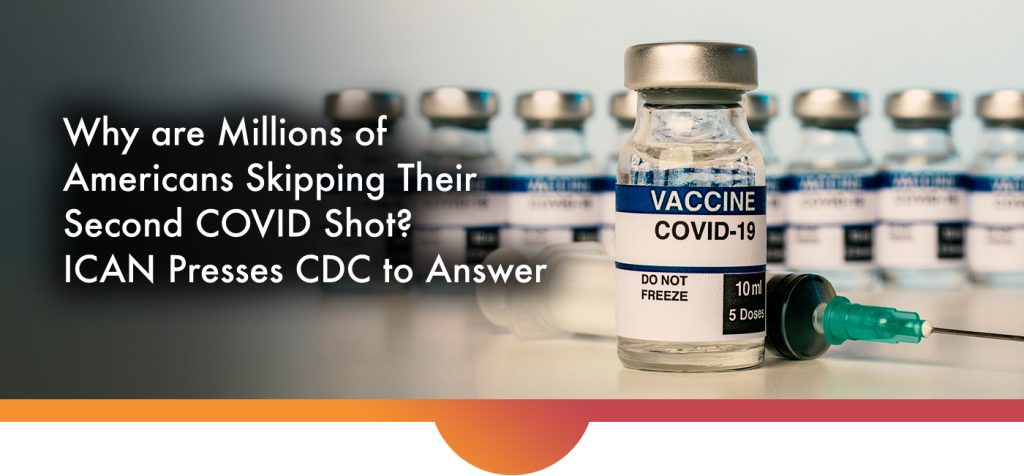

As of February 2022, CDC data indicated that nearly 32 million Americans had received one dose of a COVID-19 mRNA shot but declined to complete the series with a second dose. Since vaccine supply was abundant during that time, it raises a serious concern that millions of people apparently changed their minds about being vaccinated halfway through the process.
ICAN, through its attorneys, therefore sent a letter to the CDC requesting an official explanation about this discrepancy and pointing out that a peer-reviewed study had indicated that some patients do not complete a multi-dose vaccine series due to an adverse reaction after one of the doses in the series.
When the CDC offered no response, ICAN’s attorneys followed up with a second letter, this time pointing out the rate of adverse reactions reported to v-safe, VAERS, and other vaccine safety monitoring platforms for these shots, and again demanding that the CDC address why so many Americans had a sudden change of heart about receiving their second dose. By that time, the number of Americans who had skipped the second COVID-19 dose had grown even larger, exceeding 38 million.
Given that one of the CDC’s primary responsibilities is to monitor vaccine safety through adverse event reporting, you would think that the CDC would be glad to address this so-called vaccine hesitancy and shed some light on the issue. Unfortunately, you would be wrong as the CDC has provided no explanation for this discrepancy.
In the meantime, the numbers only keep going up. The current number of Americans who received just one mRNA dose is approaching 40 million. Did 40 million people have a bad reaction to the first shot?
While the CDC’s silence on the issue has been deafening, ICAN has absolutely no intention of letting it go. We fully intend to get to the bottom of why such a high number of Americans have skipped their second COVID-19 shot as well as our federal health agencies’ apparent lack of explanation for it.
ICAN has consistently raised issues concerning the CDC’s tracking of COVID-19 data (or lack thereof) and will continue to build this record. You can read some of ICAN’s prior work in this area below:
